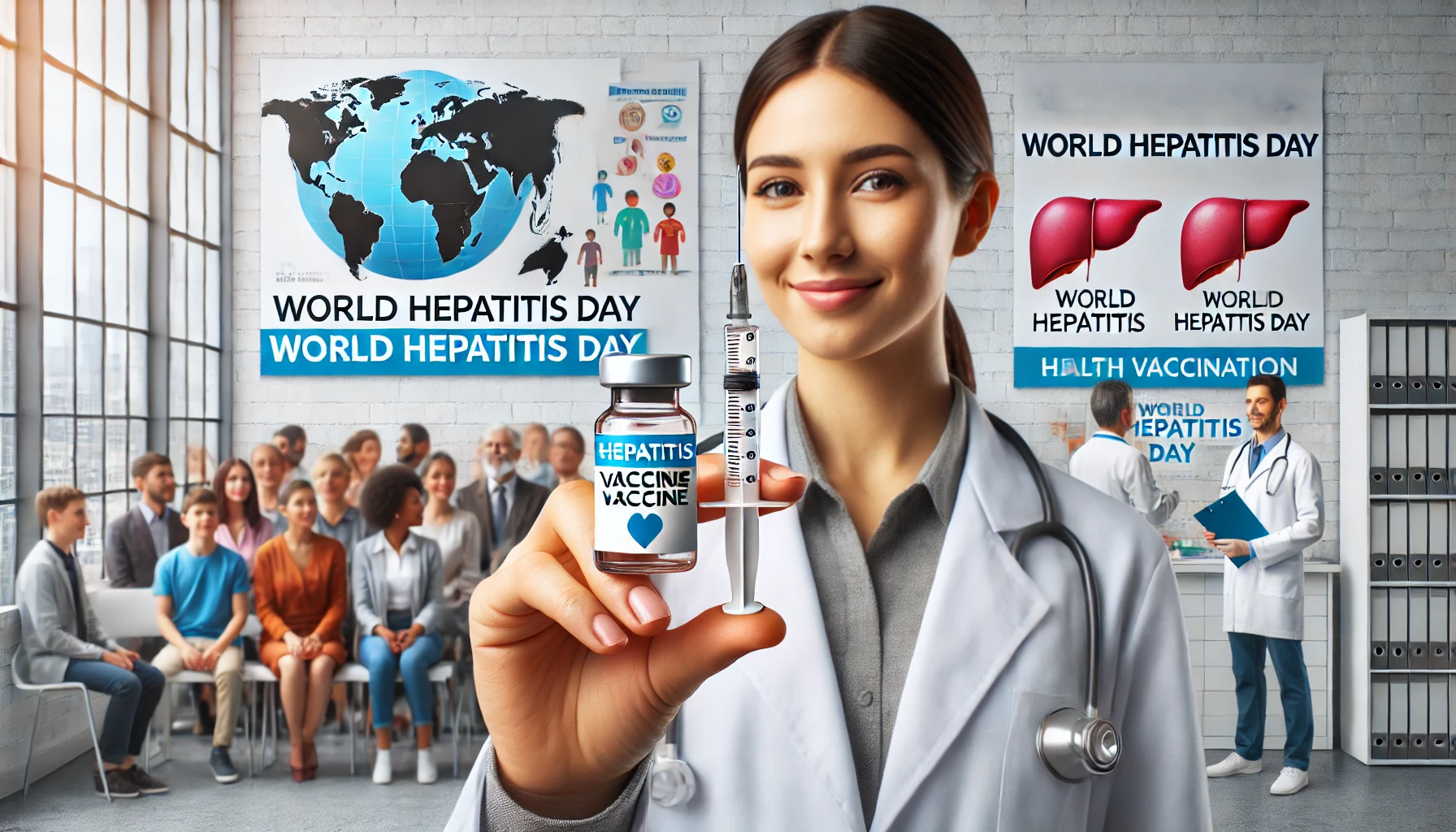Celebrating World Hepatitis Day: Key Insights from BMC Series Research
Every year, World Hepatitis Day is observed on July 28th, commemorating the birthday of Dr. Baruch Blumberg, the Nobel Prize-winning scientist who discovered the hepatitis B virus (HBV) and developed the first vaccine for it. This day serves to raise global awareness of hepatitis and the pressing need for a more robust global response to the disease. According to the World Health Organization (WHO), viral hepatitis remains a major public health threat, with the organization calling for its elimination by 2030. This blog highlights recent research and key findings that contribute to the fight against hepatitis.
Hepatitis B Vaccination in Germany: Fewer Doses, Same Protection
Since 1995, Germany has recommended childhood vaccination against hepatitis B. A successful vaccination series is measured by a hepatitis B surface antibody (anti-HBs) level of at least 10 IU/L immediately after the vaccine is administered. In 2021, Germany updated its guidelines to recommend three doses of the polyvalent hepatitis B vaccine, down from the previous four-dose schedule.
Researchers conducted a national survey from 2014 to 2017 involving children aged 3–17 to assess whether this new vaccination schedule still effectively produced adequate anti-HBs levels. The study revealed that there was no significant difference in achieving sufficient antibody levels whether the children received three or four doses, indicating that the revised schedule maintains efficacy. These findings reinforce the effectiveness of the updated vaccination strategy and underscore the importance of ongoing monitoring to ensure long-term protection.
Overcoming Barriers to Hepatitis B Screening in Nigeria
In Nigeria, hepatitis B screening is a crucial part of antenatal care, yet screening rates remain alarmingly low, especially in primary healthcare centers (PHCs). A recent study explored the barriers to screening by surveying healthcare workers across three states: Akwa Ibom, Anambra, and Kaduna.
The study found several key obstacles:
- Lack of awareness among pregnant women about the importance of HBV screening.
- High costs of HBV tests and antiviral treatments, making them inaccessible for many women.
- Insufficient knowledge and training among healthcare workers regarding HBV.
- Lack of HBV test kits and inadequate infrastructure at PHCs.
To overcome these challenges, healthcare workers recommended making HBV screening kits available for free at PHCs and launching awareness campaigns to educate women on the importance of screening. Additionally, investments in training programs for healthcare workers would ensure better handling of HBV screening and treatment, contributing to Nigeria’s goal of eliminating hepatitis B.
Hepatitis C and Health-Related Quality of Life: The Impact of Antiviral Therapy
The hepatitis C virus (HCV) can significantly impact patients’ quality of life, even after successful treatment. A recent study aimed to explore how achieving sustained virological response (SVR)—the elimination of the virus from the bloodstream—affects patients’ long-term health-related quality of life (HRQoL).
Researchers followed a cohort of HCV patients who had undergone antiviral therapy and measured their quality of life using EQ-5D questionnaires. The study concluded that achieving SVR resulted in significant improvements in HRQoL, especially within the first few years post-treatment. Sociodemographic factors like age, income, gender, and genotype were also shown to influence long-term outcomes.
This research highlights the importance of antiviral therapy not just in clearing the virus but also in improving patients’ overall well-being. Understanding how these treatments impact long-term quality of life can help healthcare providers tailor care to better meet the needs of HCV patients.
Artificial Liver Support Systems in Hepatitis B-Related Liver Failure
Acute-on-chronic liver failure (ACLF) due to hepatitis B is a life-threatening condition often treated with artificial liver support systems (ALSS). A recent study focused on patients undergoing ALSS therapy for HBV-ACLF to assess changes in immune cell populations and their impact on treatment outcomes.
The study found significant changes in immune cell populations, particularly CD8+ T cells, CD4+ TCM and TEM cells, and natural killer (NK) cells, before and after ALSS therapy. These immune changes were more pronounced in patients who did not show clinical improvement, indicating a potential link between immune responses and treatment outcomes.
The findings suggest that immunotherapy could play a vital role in treating HBV-related liver failure. By understanding these immune cell dynamics, future treatments could be better tailored to improve patient outcomes in this challenging condition.
The Path Forward: Eliminating Hepatitis as a Global Health Threat
As World Hepatitis Day highlights the ongoing fight against hepatitis, the research discussed here emphasizes the importance of vaccination, screening, treatment, and immunotherapy. Continued efforts are crucial to achieve the WHO’s 2030 goal of eliminating viral hepatitis as a public health threat.
From Germany’s vaccine advancements to overcoming screening barriers in Nigeria, and understanding the impact of antiviral therapy for hepatitis C patients, the global response to hepatitis continues to grow. By raising awareness, supporting research, and implementing sustainable interventions, the world can move closer to a future free of hepatitis.



